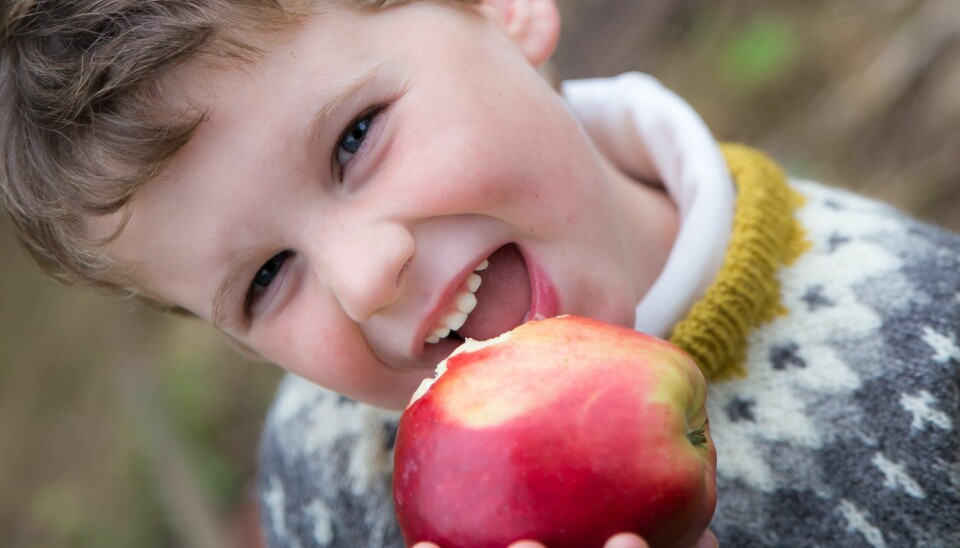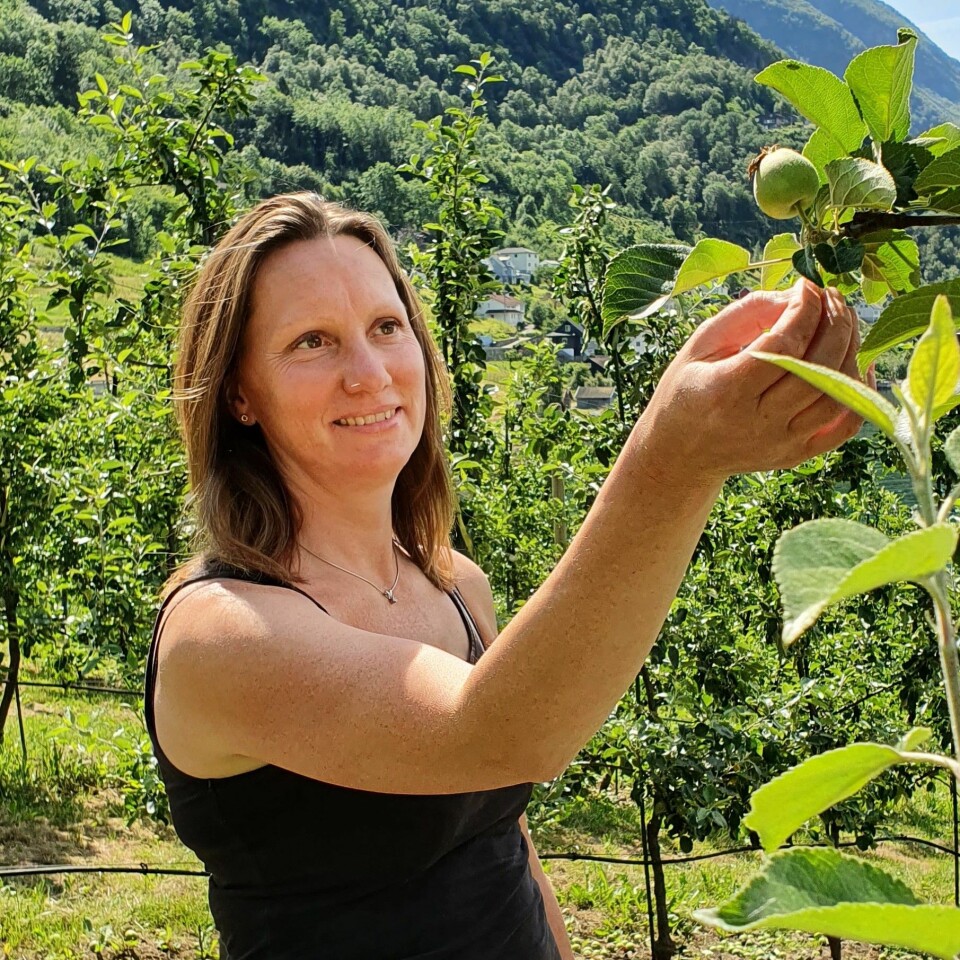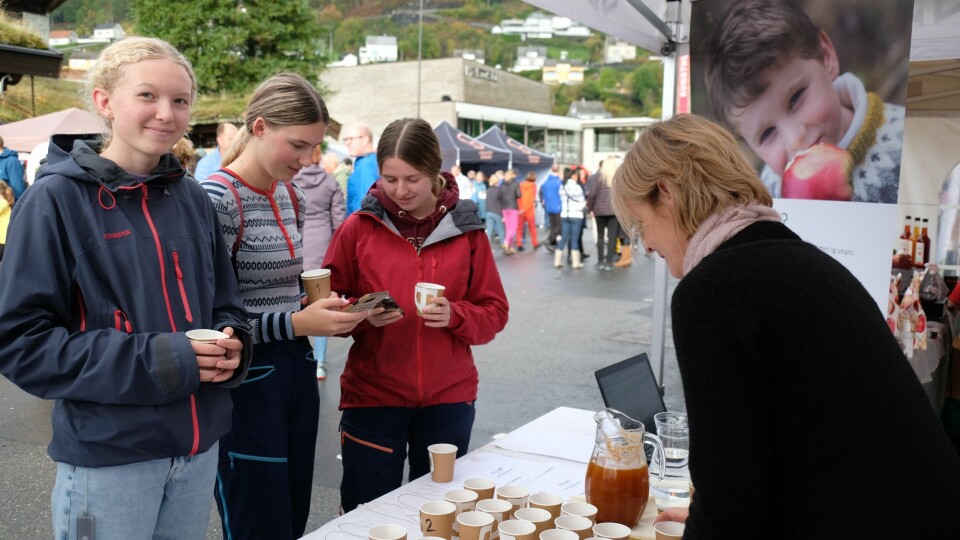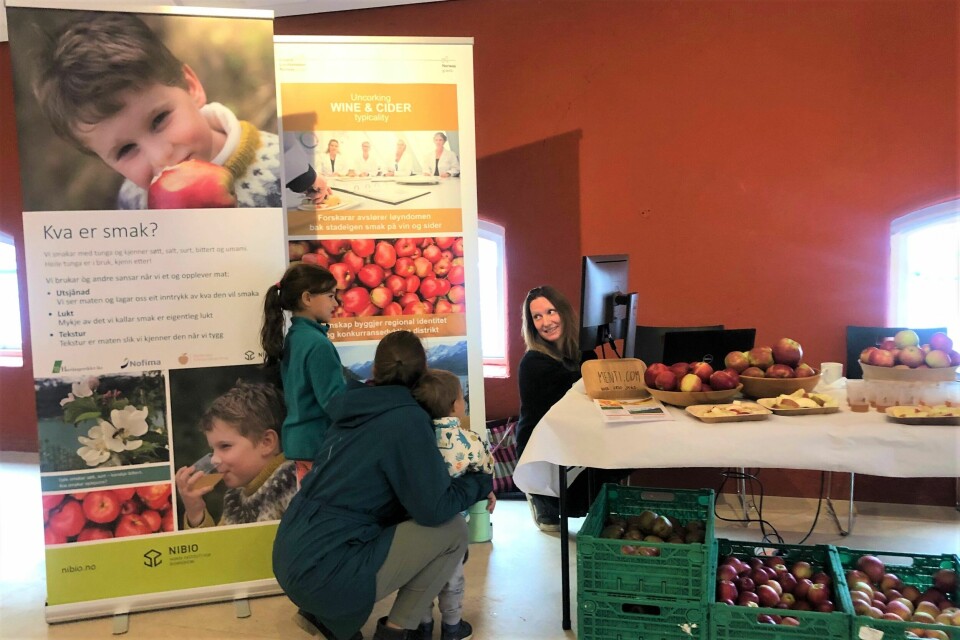THIS ARTICLE/PRESS RELEASE IS PAID FOR AND PRESENTED BY NIBIO - Norwegian Institute of Bioeconomy Research - read more

The sense of apples as part of cultural identity
When growing up by a fjord on the south-western coastline of Norway, the growing of fruit is for many people part of their common heritage. The landscape, soil and seasons lay the foundation for fruitful harvests. The same factors also nurture people’s cultural identity.
Apple production, identity and cultural factors all come together in the project Uncorking cultural heritage. Gathering knowledge along the value chain of cider production is at the project core. The backbone of it all, is the cultural heritage on which both apple-growing and various spin-off productions rest.
Since monks started culturing apples in the Ullensvang district of Hardanger around the 13th century, apples have through generations become a trademark and a regional pride in the south-eastern part of Hardanger.
Engaging the young ones

The project aims to appeal, not only to the involved business and academic segments along the value-chain, but also to the younger generations. NIBIO-researcher and the Norwegian project manager, Ingunn Øvsthus, explains:
"Inviting children and teen-agers to take part in the project activities through such a familiar act as taking a bite of an apple and describing the sensing experience of it, the aim is to collect the words they use for characterizing smell, taste and texture and to raise awareness about the sensory attributes of apples and apple-products."
In addition to these project goals, she says there’s a bonus to be had.
"We believe that such engagement from ‘the young ones’ also contributes to enhance their feeling of identity. The fruit, the taste and the whole experience of involvement ads to their sense of belonging and their sense of ‘me’, their cultural heritage and identity," Øvsthus says.

Workshops on taste
Hence, the science team at NIBIO has conducted two ‘Taste Workshops’ on the topic taste, smell and texture of apples. The first workshop was held during the ‘research days’ in Odda, the second at the Hardanger Apple and Cider fair in Øystese.
"At the work-shops, Children and young adults who visited the stands, were challenged to describe the sensory appearance of apple fruit and juice in their own words," Øvsthus says.
Mentimeter, an interactive, web-based response system, was used to gather the terms they used and to create word clouds.
Sweet, crisp, nice, acidic, velvet, balanced, mellow – and many other words were some of the answers. They were also challenged to identify what type of apples the juice was made from.

A panel for securing product quality
Among other project activities, a sensory panel for evaluation of the trademark Cider from Hardanger, has been established at Lofthus in Hardanger. The product name Cider from Hardanger is a protected designation of origin. The members of the panel will train their senses to find and define the typicalities of the products. The sensory panel will in the future be part of a cider-quality assurance system and function as an advisory organ for the producers.
-





































